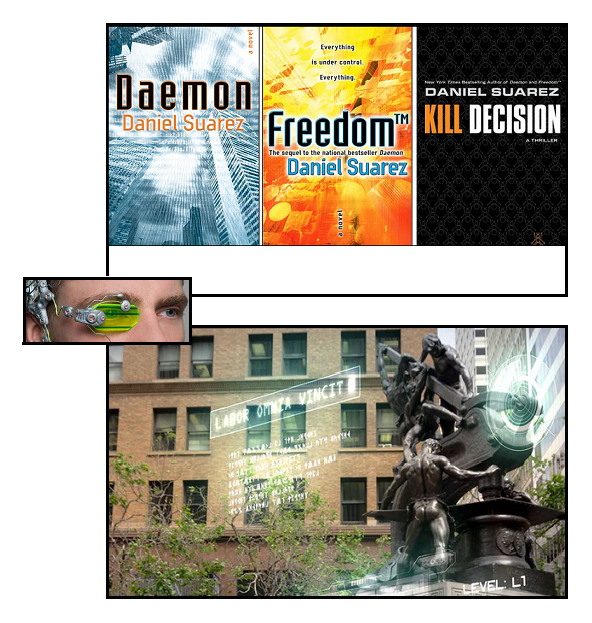Strategy at the speed of stupid
Sunday, March 1st, 2015[by Lynn C. Rees]
Warren Buffett claims his master, champion investor Benjamin Graham, observed: “In the short-run, the market is a voting machine […] but in the long-run, the market is a weighing machine.” The Graham school of investment teaches focus on the weighing machine. Its students heed the call of the voting machine only when it gets them on the right side of the weighing machine. Favoring weight over vote let many Graham students profit more from weighing than others profited by voting. They gained more, and suffered less.
In the division of power between men in the larger market for power that is world politics, heeding the frenzy of voting over the slow tilt of weighing is as dangerous as it is desirable. Danger, like desire, comes clothed in bright flashing noise. Man is primed to vote when he should weigh by the cravings of the panicked beast deep in his fallen nature. Vivid easy commands more unthinking loyalty than just plain hard. With small things, this is survivable. With big things, this is life-threatening.
The current moment offers an easy and vivid contrast between vote bait and weight bait.
In one corner, we have the Islamic State of Iraq and the Levant (ISIL), better known to Western voters as ISIS. ISIL is classic vote bait. ISIL is all vivid easy: they use easy and vivid theatrical atrocity to win the attention that wins votes. They have to. While theatricality is a luxury for the strong and ambitious, it’s a necessity for the weak and ambitious. It’s what you do when you have as little weight as ISIL.
Gorgeous George told young Cassius Clay, “A lot of people will pay to see someone shut your mouth. So keep on bragging, keep on sassing and always be outrageous.” Clay saw wisdom: “I saw 15,000 people comin’ to see this man get beat. And his talking did it. I said, ‘This is a gooood idea!'” Gorgeous George was not the best professional wrestler, but he was easily the most vivid professional wrestler. His theatricality drew votes, increased his stock, and led viewers to vote him into being larger than life.
Through the hadith of Gorgeous George, “Win if you can, lose if you must, but always cheat!”, ISIL is now a top vote getter. It makes the voting machine ring with frenzy. While ISIL has no claim to be the most weighty strategic draw, it has a clear shot at the title for most votey strategic draw.
In the corner opposite, we have Russia. Russia is classic weight bait. Lots of classic weight bait. While ISIL seeks victory by cloaking its lightweight self in vote-drawing clamor, Russia seeks victory by cloaking its continent-spanning mass in weight-shifting silence. Crimea is taken by men without attribution. Russians without borders fight in the Donbass. Russia fights what the Arthashastra calls silent war, the War Which Cannot Be Named. Invasion happens by walking around.
Yet the unsleeping but easily distracted eye of official attention is reflexively drawn to the flash in the pan that is ISIL. ISIL jumps violently up and down, yelling “Look at me! Look at me!” with Made for YouTube clickbait barbarism. If there is a button for causing the voting machine to mindlessly suck up strategic bandwidth, be it genocide, retconned eighth-century nostalgia, florid rhetoric, scary men with beards, and over-the-top B-movie supervillainy, ISIL will furiously press it until its fingers fall off. They want to be seen: they have a scripted rendezvous at Meggido three hundred miles too north. If they can’t be a kufir magnet, they can’t be anything.
Since the most limited resource in today’s West of material plenty is attention, the blinking of ISIL diverts real power away from weightier matters. What Russia does carries more weight that what ISIL does. And ISIL can’t do much outside its territory except inflict bad theater on its viewers. Russia has nukes. ISIL has has YouTube. YouTube is huge to voting machine watchers. It’s marginal to weighing machine monitors except as just one input building towards a cumulative weight that tilts the weighing machine one way or the other. Nukes unleash weight with a speed that makes even the most shallow of flash voting look tardy.
Weighing Russia by investing sustained attention is strategy at the speed of smart. Voting for ISIL with any attention at all is strategy at the speed of stupid.



